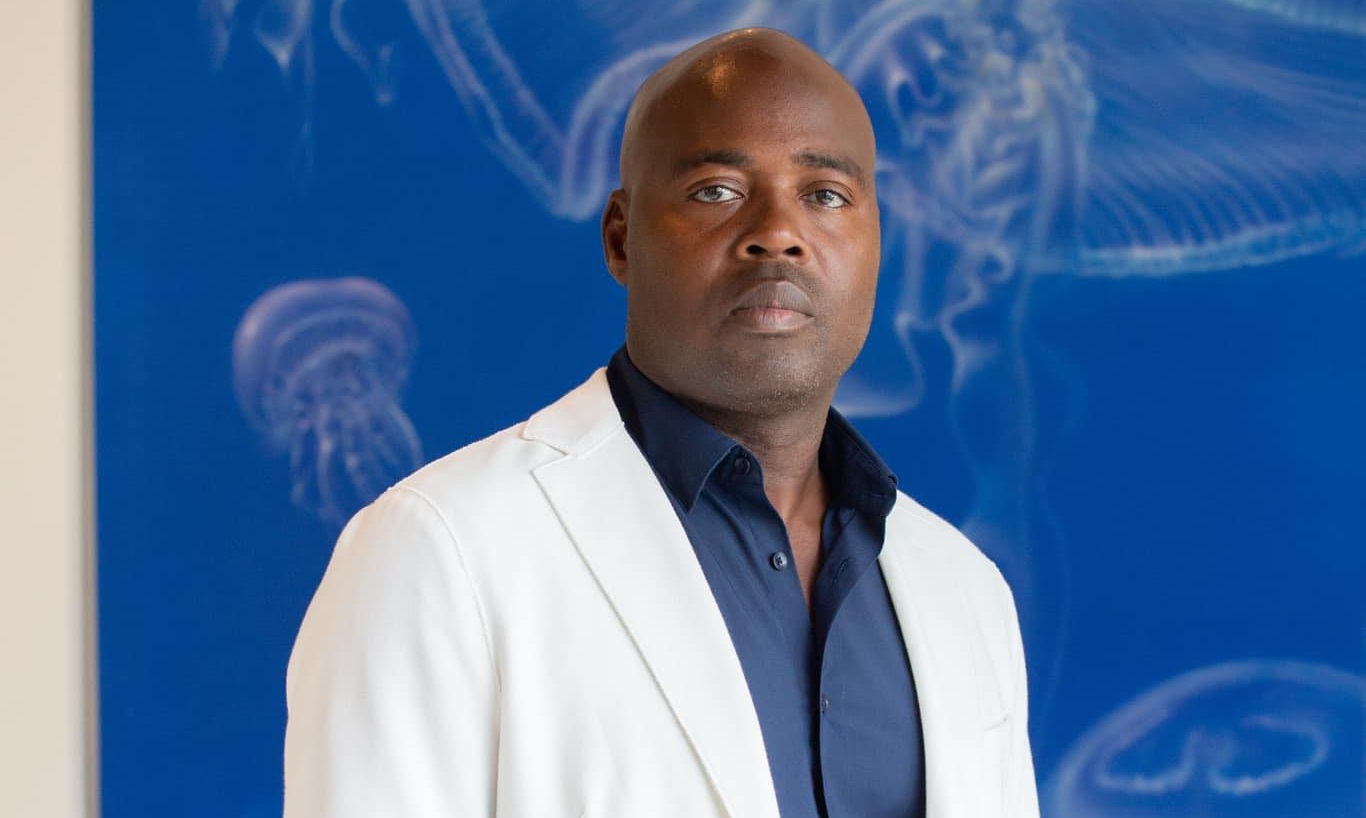Providenciales, Turks and Caicos, May 15, 2023 – Post-election, Trevor Musgrove now moves from the role of TCHTA President to Chairman. Musgrove delivered his final message to members at the association’s recent AGM, before passing the torch to the newly elected President, James McAnally.
Reflecting on his two years, Trevor says, “Through my involvement as a Board Director in previous years, I knew the role would be both challenging and rewarding.” He continued, “As an Allied Member, it was important to me that we worked to bring even more small businesses into the membership and forged a better relationship with government. These were my main goals.” 
As Chair of the Advocacy Committee, Musgrove’s final report on February 24th was an overview of the organization’s success in representing its members, the tourism industry, and the country’s communities. Advocacy issues over the past two years ran the gamut of Immigration and Border Control regulations, Human Resource concerns, Crime, and more.
In 2022, the association’s efforts were chiefly focused on the big changes announced by government for the DMMO transition and lobbying for responsive and aggressive tactics in the face of the country’s heightened crime wave. Back in 2021 when Musgrove was first elected to the seat, the country was moving out of its ‘closed borders’ period, and many crucial decisions needed to be made for the safety and protection of the country and its people while balancing the need for an economic rebound.
Incidentally, the TCHTA Board and current government both took seats around the same time in 2021, and Musgrove’s team engaged the Ministers early to pledge a continued commitment to partnership. This, Musgrove says, paid off.
“Thankfully, the government embraced the need for public and private stakeholders to be engaged so that the needs of the country were addressed holistically,” he shared. “They kept us involved and ensured feedback and data from our members was included when major decisions were being made.”
The Chairman says he is filled with pride over the accomplishments he and his outgoing Board of Directors achieved together and is appreciative of the all-hands-on-deck collaboration.
During the period of his Presidency, the TCHTA launched its Member-2-Member program which was a significant move to strengthening the network of businesses and encouraging B-2-B participation, and one Musgrove looks forward to seeing expand in its reach.
It was a busy and eventful two years as the TCHTA worked diligently to assist in the matters affecting the country during a time when the industry was getting ‘back to business’. This included assisting the government with:
- Airport overcrowding after the reopening of the country’s borders
- Lobbying the CDC on country’s status on global site
- Setting up multiple COVID-19 testing sites for visitors and residents
- Input on Beach Vending policy
- Lobbying for swift and aggressive responses to crime
- Endorsement of the Gun Amnesty program
- Engagement with Ministry of Tourism and DMMO consultants
- Providing data for inclusion in vaccination mandate Cabinet discussions
Musgrove says this list is far from exhaustive but shows the level of engagement and continued efforts of the Board and the TCHTA’s committees over the last two years.
“We have also maintained our focus on community efforts and ensured that during our milestone 30thanniversary year in 2022, our calendar included various activities engaging the community because we simply couldn’t do it without them,” said Musgrove.
Among the activities referenced were the 30 Mighty Mahogany trees planted throughout the country; the adoption of 30 coral reefs through the Reef Fund, and giveaway competitions open to the public. In addition to the commemorative initiatives, Musgrove is proud of the association’s support of the South Caicos back-to-school program and the ADIP local film festival sponsorship.
He was pleased to have been at the helm to see the TCHTA’s signature programs “TCI Shines”, “Hospitality Adventures” and “Hello Tourist” come back after the necessary hiatus, and the association’s premier luxury magazine, “Destination”, return to resort rooms and to the international market.
When asked how it felt to be leaving the role, Musgrove had this to say: “It is bittersweet for me. It allowed me to play a more active part in the important work we do, and I’ve enjoyed every minute.” Musgrove says he has done his best to lead with integrity and purpose and looks forward to giving his full support to the new President, as was done for him by his predecessor.
best to lead with integrity and purpose and looks forward to giving his full support to the new President, as was done for him by his predecessor.
He shared his confidence in James McAnally, who will now lead a new Board of Directors for the 2023 to 2025 term, “Jamie is a committed and dedicated individual with a love for everything Turks and Caicos. He has been a part of the association for many years as a Director and is a head-down, hands-to-the-wheel gentleman. Always hard at work, and always thinking ahead for what can be done to make Brand TCI even stronger. He is also passionate about protecting our natural resources which is a great benefit as we move toward stronger sustainability efforts for the country.”
When asked why he chose not to put himself forward for the seat in the recent association elections, Trevor said, “Unfortunately my other commitments did not allow for it, but I am no less dedicated to the TCHTA and the work we do to protect our members, our product, and the sustainability of the Turk and Caicos Islands.”
He shared how humbled he has been by the wave of support and encouragement he received throughout this time. “A big thank you to everyone who advised or encouraged me along the way. I will forever be appreciative of your support.”
Musgrove says he leaves the post humbled and grateful for the opportunity to lead alongside a group of dedicated and passionate individuals and hopes that whatever he brought to the role has been for the betterment of the association, Brand TCI, and this country that he loves so dearly.


 Caribbean News1 week ago
Caribbean News1 week ago
 Caribbean News1 week ago
Caribbean News1 week ago
 Caribbean News1 week ago
Caribbean News1 week ago
 Caribbean News1 week ago
Caribbean News1 week ago
 Bahamas News1 week ago
Bahamas News1 week ago
 News1 week ago
News1 week ago
 Bahamas News1 week ago
Bahamas News1 week ago
 News7 days ago
News7 days ago














